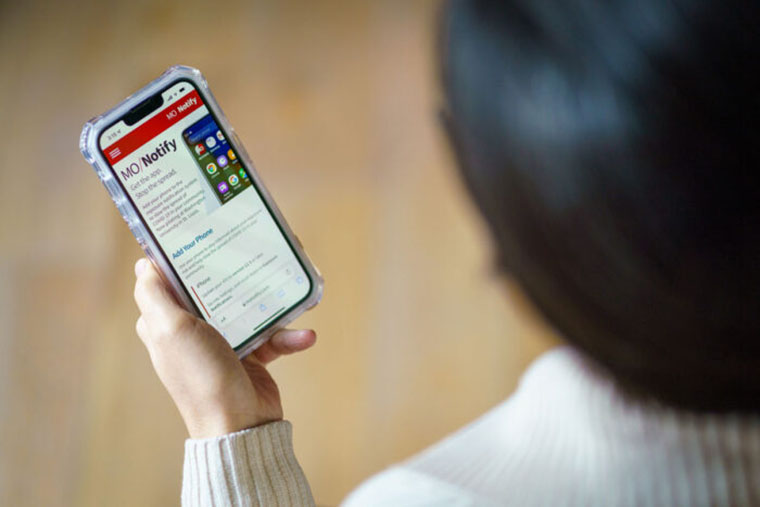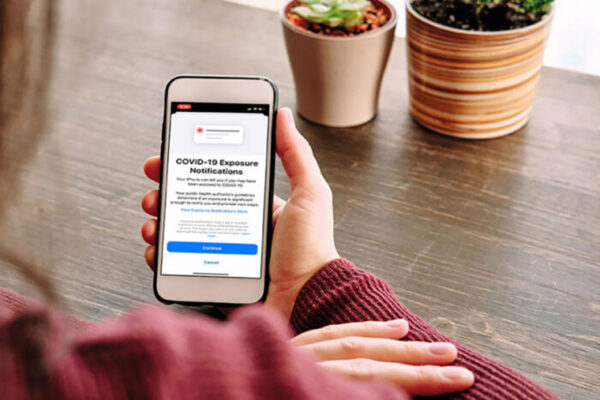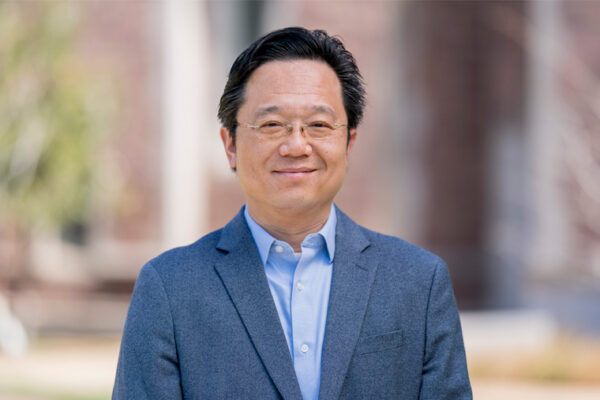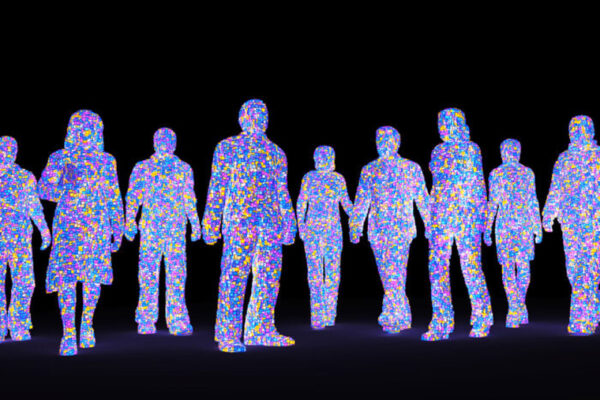With COVID-19 infections still spreading rapidly, your smartphone could help alert you if you’ve been exposed to someone with COVID-19. Washington University in St. Louis is expanding access to MO/Notify, a smartphone system that privately sends pop-up alerts to users in Missouri when they have spent time near someone who later tests positive for COVID-19. The system uses the same COVID-19 Exposure Notifications System developed by Google and Apple that is now available in more than 25 states, including California, Alabama, North Carolina and Wisconsin.
The university piloted MO/Notify beginning in July to its faculty, staff and students. About 27,200 users activated the system, and in January alone, about 875 exposure alerts were delivered to users.
Now, the university is expanding access to MO/Notify beyond the Washington University community. Google and Apple recently added a new feature to the notification system that allows users to confidentially enter their own positive test results. Previously, only testing sites or public health entities could provide the verification link required to add positive test results in the system. The change was made to account for infections detected by home testing, as more COVID-19 tests have become available for people to use at home. While the exposure notifications are easy to use, they only work if people voluntarily opt in to using the system.
“The highly transmissible omicron variant has not only overwhelmed hospitals but the ability of local health departments to conduct contact tracing; they just can’t keep up with all the positive tests,” said Philip R.O. Payne, director of the university’s Institute for Informatics, and associate dean for health information and data science. Payne has led efforts to bring MO/Notify to Washington University and expand access to other Missourians.
“One simple thing that each of us can do right now to help slow the spread of COVID-19 is to opt in to getting rapid, pop-up alerts about exposures that are available through MO/Notify,” Payne added. “Such alerts will prompt users to get tested if they’ve been exposed to the virus and take precautions to keep friends, loved ones and others safe. MO/Notify also may be attractive to businesses that want to help keep their employees safe during this most recent surge and as we return to a new normal.”
If you have an iPhone, you can opt in to Exposure Notifications in Settings. On Android phones, you can find it as an app in the Google Play store.
The technology works by using a smartphone’s Bluetooth to exchange randomly generated codes with nearby smartphones also running the system and protects people’s privacy because it does not collect the location from their smartphones. When two users’ phones are close to one another, the phones exchange random codes and store them for 14 days on the devices. The codes also change frequently to further protect privacy. Users must explicitly enable Exposure Notifications for the MO/Notify system to run on their devices.
A person using the system who tests positive for COVID-19 has the ability to confidentially share a positive test result by tapping on their verification link and completing the upload process, generated from MO/Notify, which, in turn, notifies others with whom they have also been in close proximity over the past 14 days and who also have opted in to receive the alerts. The people receiving an alert don’t know who they were exposed to, or even when they were exposed. Identities are not shared. Such alerts also recommend steps that the exposed people can take to safeguard their health and that of others, such as getting tested for COVID-19 and monitoring for symptoms.
The Institute for Informatics also has developed materials to help businesses, universities and other entities explain the technology to their employees and constituencies, and encourage adoption.
MO/Notify is compatible with systems in other states that use COVID-19 Exposure Notifications. This means that if a Missouri resident is traveling in California, for example, and has opted to participate in MO/Notify, then returns home, tests positive and enters it into MO/Notify, a notification will alert users in California and any participating states who came in contact with the infected person. Similarly, if that Missouri resident is exposed to COVID-19 while in another state that uses a COVID Exposure Notification system, he or she will receive a notification alert of that exposure.
“We’re really equipping people to get alerts, no matter what places they may visit or where they may travel,” Payne said. “This is important as we move forward living with COVID-19 and are increasingly interacting with people beyond our homes, schools and offices. Such smartphone notifications also can assist communities and employers as people return to their daily lives, helping individuals to feel safer and empowered to protect their loved ones.
Washington University School of Medicine’s 1,700 faculty physicians also are the medical staff of Barnes-Jewish and St. Louis Children’s hospitals. The School of Medicine is a leader in medical research, teaching and patient care, and is among the top recipients of research funding from the National Institutes of Health (NIH). Through its affiliations with Barnes-Jewish and St. Louis Children’s hospitals, the School of Medicine is linked to BJC HealthCare.




Comments and respectful dialogue are encouraged, but content will be moderated. Please, no personal attacks, obscenity or profanity, selling of commercial products, or endorsements of political candidates or positions. We reserve the right to remove any inappropriate comments. We also cannot address individual medical concerns or provide medical advice in this forum.